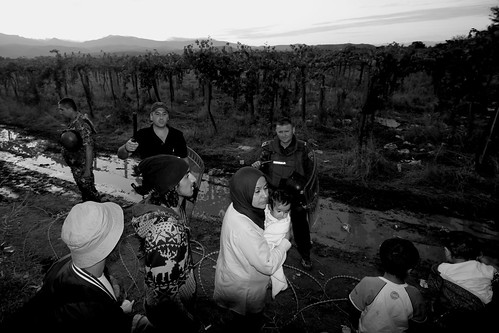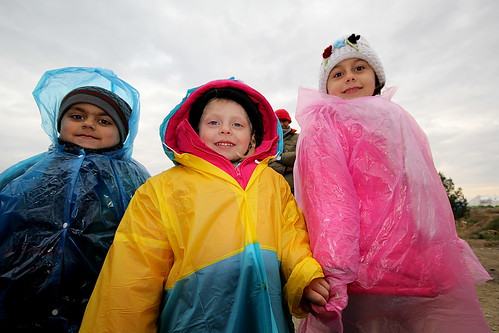Dear
friends,
we would like to inform you about
the refugee situation in Greece and specifically in the city of
Thessaloniki and the surrounding Macedonia region in the hope you can help us con tend with the growing crisis.
As
more and more conflict arises in Syria and the surrounding areas,
more people are fleeing, leaving their homes behind to seek refuge in
Europe.
There
has been a considerably large incoming wave of refugees during the
past four months, as a result of the recent strikes. The vast
majority of the refugees arriving are families with underaged
children and elders, as well as individuals.
In
Thessaloniki, there are a few tens to a few hundreds of arrivals per
day. Only very few of the hospitality centers set up by the
government in the past two years are still working and they are
certainly not enough to host all the arriving refugees. The three
centers around Thessaloniki are about 50 to 70 km away from the city
and can only offer housing to the newly arrived.
But
since these facilities are already overcrowded, a lot of people have
to stay in the streets. In many places in Thessaloniki, families are
forced to sleep on the sidewalks, without any support from the state.
We,
the people of the Ecological Movement of Thessaloniki and Oikopolis,
consider it our duty to support these people during their rough
journey towards safety and we collaborate closely with all the
organizations and volunteer groups that are engaged in our city.
In
order to help these people we constantly try to:
- Cook and distribute hot meals and fruits - vegetables for people that don’t have any access to cooked food.
- Provide them with raw materials for cooking in their houses or in the camps.
- Supply them with personal hygiene products for adults and children as well
- Offer baby milk as well as the possibility to prepare it in our place
- Support them with their medical expenses
- Collect and distribute clothes , shoes, sleeping bags, tents and anything else that will help them if they are homeless.
- Have free English and Greek language lessons
We
are gathering all available supplies and we would be grateful if
anyone would like to contribute any of the following:
Baby
formula and baby food
Baby
diapers and wet wipes
Strollers
and baby carriers
Personal
hygiene and care goods, soaps etc.
Rice
and pasta
Legumes
(beans, chickpeas, lentils etc.)
Flour,
Oil (sunflower oil, olive oil)
Fruit
and vegetables
Men’s
clothes and shoes
Children’s
clothes and shoes
Socks
and underwear
Backpacks
Sleeping
bags
Any
financial contribution will also be highly appreciated!
You
can contact us at:
Tel:
0030 2310222503 - email: oikopolis.social.center@gmail.com
Visit
us at:
ΟΙΚΟΠΟΛΙΣ/ΕCOPOLIS,
Ptolemeon 29a, 5th floor, Thessaloniki
Make
a donation at the following account:
ΕΘΝΙΚΗ
ΤΡΑΠΕΖΑ / NATIONAL BANK OF GREECE
IBAN
GR2301102170000021729602652
Swift
code: ETHNGRAAXXX
ΟΙΚΟΛΟΓΙΚΗ
ΚΙΝΗΣΗ Ν. ΘΕΣ/ΝΙΚΗΣ
ECOLOGICAL
MOVEMENT OF THESSALONIKI



